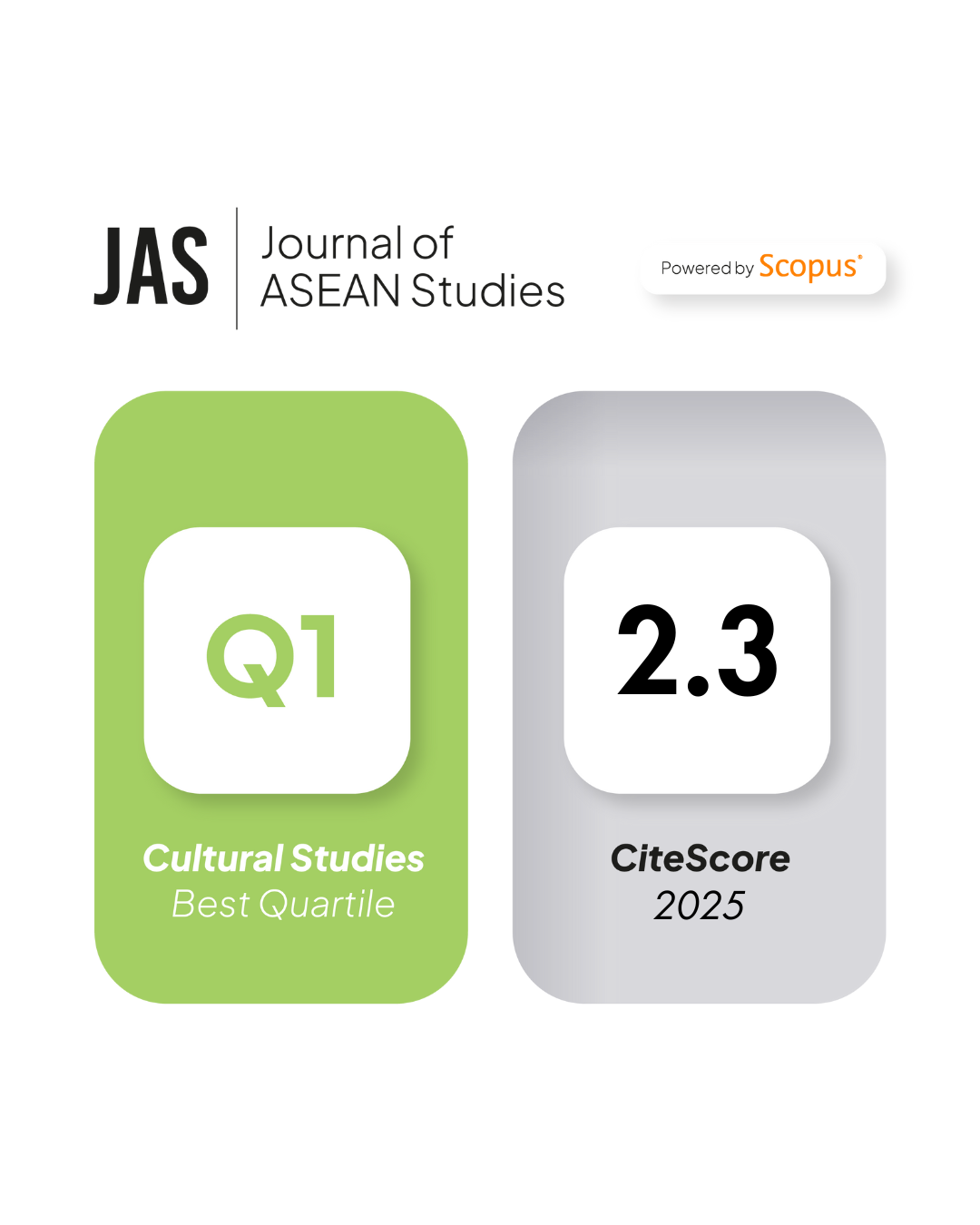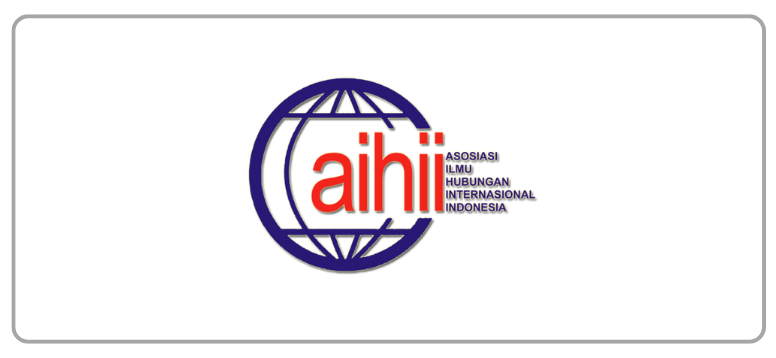'Fake News' in Asean: Legislative Responses
DOI:
https://doi.org/10.21512/jas.v9i2.7506Keywords:
ASEAN, defamation, fake news, legislation, Facebook, hate speech, hoax news, misinformation, social mediaAbstract
The research is a legal review based on the documentary research concept by comparing the development of legislative responses to fake news spread in Southeast Asia. Anti-fake news legislation focuses on the transmission of information by electronic means than print media. The analysis is carried out for each of the member states by including a clause-by-clause examination of the legislation and subsequent cases addressing legal issues associated with the laws. Several common factors should be addressed to provide a fairer and more transparent approach, including developing a clear-cut definition of fake news. Two key elements should be met in the definition of spreading of fake news: it should be the intentional spreading of misinformation or disinformation by design. The research suggests it would be better to develop anti-fake news legislation as either a standalone statute or a specific amendment to existing legislation than include fake news in omnibus legislation. Except in the most serious cases, creating, publishing, or distributing fake news illegality should be reduced from a criminal offence to an administrative offence, where the police issue a fine. Given the documented publishing and spreading of disinformation by state actors, their servants and agents, there should be an explicit “fake news†offence associated with the action of such persons.
References
Al-Fatih, S. & Aditya, Z. F. (2019). Hoax and the principle of legal certainty in Indonesian legal system. Proceedings of the 1st International Conference on Business, Law And Pedagogy (ICBLP) 2019, Sidoarjo, Indonesia. http://dx.doi.org/10.4108/eai.13-2-2019.2286165
Anansaringkarn, P. & Neo, R. (2021). How can state regulations over the online sphere continue to respect the freedom of expression? A case study of contemporary ‘fake news’ regulations in Thailand. Information & Communications Technology Law, 30(3), 283-303. https://doi.org/10.1080/13600834.2020.1857789
Baker, J. A. (2019, December 04). Google points to POFMA Code of Practice for not accepting political ads online after SDP raised concerns. ChannelNewsAsia. https://www.channelnewsasia.com/news/singapore/google-points-to-pofma-code- of-practice-for-not-accepting-12150632
Buan, L. (2019, February 14). DOJ: You can be sued for cyber libel within 12 years of publication. Rappler. https://www.rappler.com/nation/223517-doj-says-people-can-be-sued-cyber-libel-12-years-after-publication
Caliwan, C. L. (2020, April 15). PNP nabs 47 covid-19 fake news peddlers. Philippines News Agency. https://www.pna.gov.ph/articles/1099910
Cambodia: COVID-19 spurs bogus “fake news” arrests (2020, April 29). Human Rights Watch. https://www.hrw.org/news/2020/04/29/cambodia-covid-19-spurs-bogus-fake-news-arrests
Cambodia: State of Emergency Bill violates the rule of law (2020, April 8). International Commission of Jurists. https://www.icj.org/wp-content/uploads/2020/04/Cambodia-State-of-Emergency-Statement-2020-ENG.pdf.
Content sharing on social media is a shared responsibility (2019, July 20). Malaysian Communications and Multimedia Commission. https://www.mcmc.gov.my/en/media/press-releases/content-sharing-on-social-media-is-a-shared-respon
Community standards (2020). Facebook. https://www.facebook.com/communitystandards/.
Douek, E. (2018, October 22). Facebook’s role in the genocide in Myanmar: New reporting complicates the narrative. https://www.lawfareblog.com/facebooks-role-genocide-myanmar-new-reporting-complicates-narrative
GE2020: Full results (2020, July 11). Straits Times. https://www.straitstimes.com/multimedia/graphics/2020/07/singapore-general-election-ge2020-live-results/index.html.
Gleicher, N. (2018, August 28). Removing Myanmar military officials from Facebook. Meta. https://about.fb.com/news/2018/08/removing-myanmar-officials/
Gleicher, N. (2020, February 12). Removing coordinated inauthentic behavior from Russia, Iran, Vietnam and Myanmar. Meta. https://about.fb.com/news/2020/02/removing-coordinated-inauthentic-behavior/
Howe, L. K. (2019). True or false or misleading? "[A]dequate judicial oversight" over Part 3 Directions under the Protection from Online Falsehoods and Manipulation Act." Singapore Comparative Law Review, 239-247.
Hui, J. Y. (2018, February 28). Fake news as shared challenge: Mutual learning through case study of Indonesia. https://www.parliament.gov.sg/docs/default-source/sconlinefalsehoods/written-representation-82.pdf
Ibrahim, A. (2018). The Rohingyas: Inside Myanmar's genocide. London: C Hurst & Co.
Irving, E. (2018, September 07). ‘The role of social media is significant’: Facebook and the Fact-Finding Mission on Myanmar. OpinioJuris. http://opiniojuris.org/2018/09/07/the-role-of-social-media-is-significant-facebook-and-the-fact-finding-mission-on-myanmar/
Jaipragas, B. (2020, July 7). Has Singapore’s fake news law passed the election test? South China Morning Post. https://www.scmp.com/print/week-asia/politics/article/3092228/has-singapores-fake-news-law-passed-election-test.
Jayakumar, S., Ang, B. & Anwar, N. D. (2021). Fake News and disinformation: Singapore perspectives. In S. Jayakumar, B. Ang, and N. D. Anwar (Eds.), Disinformation and Fake News (pp. 137-158). London: Palgrave Macmillan.
Kusumawardhani, M. (2020). Lessons from the world’s largest single-day election: How Indonesia governed the political narrative during the 2019 election. Harvard Kennedy School Review, 20, 14-19.
Lazer, D. M. J., Baum, M. A., Benkler, Y., Berinsky, A. J., Greenhill, K. M., Menczer, F., …Zittrain, J. L. (2018). The science of fake news. Science, 359(6380), 1094-1096. https://doi.org/10.1126/science.aao2998
Malaysia Parliament scraps law criminalising fake news. (2019, October 10). Al Jazeera. https://www.aljazeera.com/news/2019/10/malaysia-parliament-scraps-law-criminalising-fake-news-191010024414267.html
Meyer, P. (2020, July 07). Singapore’s first election under the fake news law. The Diplomat. https://thediplomat.com/2020/07/singapores-first-election-under-the-fake-news-law/
Molina, M., Sundar, S., Le, T., & Lee, D. (2021). “Fake News” is not simply false information: A concept explication and taxonomy of online content. American Behavioral Scientist, 65(2), 180-112. https://doi.org/10.1177%2F0002764219878224
Mozur, P. (2018). A genocide incited on Facebook, with posts from Myanmar’s military. The New York Times. https://www.nytimes.com/2018/10/15/technology/myanmar-facebook-genocide.html
Myanmar: Briefing paper on criminal defamation laws (2015, November 25). International Commission of Jurists. https://www.icj.org/wp-content/uploads/2015/11/Myanmar-Criminal-Defamation-Laws-Advocacy-Position-paper-2015-ENG.pdf
Myanmar: Military coup kills fragile democracy (2021, February 01). Human Rights Watch. https://www.hrw.org/news/2021/02/01/myanmar-military-coup-kills-fragile-democracy.
Myanmar: Telecommunications law, (2013, March). Article 19. https://www.article19.org/data/files/medialibrary/38665/Myanmar-analysis--8-March-2017.pdf
Myanmar protesters take to streets, vowing continued demonstrations against military takeover. (2021, February 07). ABC News. https://www.abc.net.au/news/2021-02-07/myanmar-anti-coup-protests-grow-army-broadens-internet-crackdown/13129740
New penal code implemented in Laos. (2018, November 30). Zico. https://zico.group/blog/new-penal-code-implemented-in-laos/
Online misinformation and news quality in Australia: Position paper to guide code development. (2020, June). Australian Communications and Media Authority (ACMA). https://www.acma.gov.au/australian-voluntary-codes-practice-online-disinformation
Potkin, F. (2021, February 5). Facebook faces a reckoning in Myanmar after blocked by military. Reuters. https://www.reuters.com/article/us-myanmar-politics-facebook-focus/facebook-faces-a-reckoning-in-myanmar-after-blocked-by-military-idUSKBN2A42RY
Report of the detailed findings of the Independent International Fact-Finding Mission on Myanmar (2018, September). A/HRC/39/CRP.2. https://www.ohchr.org/Documents/HRBodies/HRCouncil/FFM-yanmar/A_HRC_39_CRP.2.pdf.
Siripurapu, A. (2020, December 02). Trump and Section 230: What to know. Council on Foreign Relations. https://www.cfr.org/in-brief/trump-and-section-230-what-know
Smith, R. & Perry, M. (2020). “Fake News” legislation in Thailand: The good, the bad and the ugly. Athens Journal of Law, 6(3), 243-264. https://dx.doi.org/10.30958/ajl.6-3-3
Smith, R. & Perry, M. (2021). Fake news and the convention on cybercrime. Athens Journal of Law, 7(3), 335-338. https://doi.org/10.30958/ajl.7-3-4
Sovuthy, K. (2019, December 11). Interior Ministry continues work on cybercrime law. Khmer Times. https://www.khmertimeskh.com/668855/interior-ministry-continues-work-on-cybercrime-law/
Stecklow, S. (2018, August 15). Inside Facebook’s Myanmar operation: Hatebook. Reuters. https://www.reuters.com/investigates/special-report/myanmar-facebook-hate/
Tapsell, R. (2019). Indonesia’s policing of hoax news increasingly politicised. ISEAS Perspective, 75. https://www.iseas.edu.sg/images/pdf/ISEAS_Perspective_2019_75.pdf
The twitter rules (2021, February 07). Twitter Help Center. https://help.twitter.com/en/rules-and-policies/twitter-rules.
Tong, C., Gill, H., Li, J., Valenzuela, S., & Rojas, H. (2020). “Fake news is anything they say!” — Conceptualization and weaponization of fake news among the American Public. Mass Communication and Society, 23(5), 755-778. https://doi.org/10.1080/15205436.2020.1789661
Wade, F. (2017). Myanmar's Enemy Within: Buddhist Violence and the Making of a Muslim 'Other'. London: Zed Books.
Wang, C.-C. (2020). Fake news and related concepts: Definitions and recent research development. Contemporary Management Research, 16(3), 145-174. https://doi.org/10.7903/cmr.20677
Wardle, C. (2017, February 16). Fake news. It’s complicated. First Draft. https://firstdraftnews.org/latest/fake-news-complicated/
Downloads
Published
How to Cite
Issue
Section
License
Copyright (c) 2021 Robert Brian Smith, Mark Perry, Nucharee Nuchkoom Smith

This work is licensed under a Creative Commons Attribution-NonCommercial 4.0 International License.


























